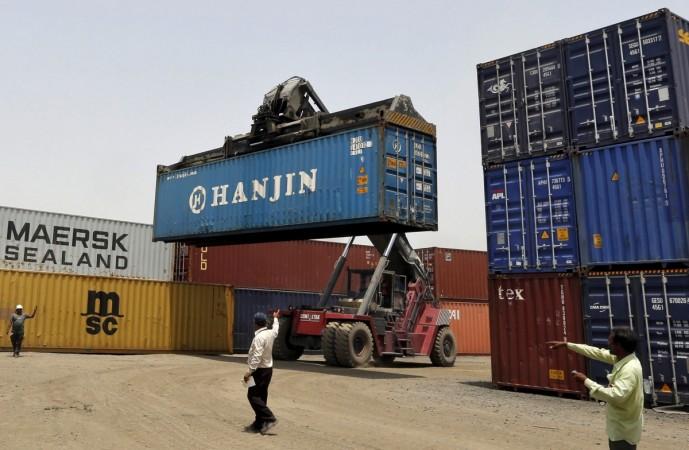
India is set to decisively outpace China in economic growth this year, and emerge not just as the fastest-expanding economy but also as one of the handful of countries to show some acceleration, as per the latest report of the International Monetary Fund (IMF).
The IMF, in an update released here on Thursday, has projected India's growth at 7.5 per cent this year, against 6.8 per cent for China. While the growth outlook on India for 2016 has been retained at 7.5 per cent, that for China is pegged 50 basis points lower at 6.3 per cent.
"Global growth is projected at 3.3 per cent in 2015, marginally lower than in 2014, with a gradual pickup in advanced economies and a slowdown in emerging market and developing economies. In 2016, growth is expected to strengthen to 3.8 per cent," said the IMF update on World Economic Outlook.
"In emerging market economies, the continued growth slowdown reflects several factors, including lower commodity prices and tighter external financial conditions, structural bottlenecks, rebalancing in China, and economic distress related to geopolitical factors," it said.
But in advanced economies, it said, the growth was projected to increase from 1.8 per cent in 2014 to 2.1 per cent in 2015 and 2.4 per cent in 2016 - which was a more gradual pickup than what was forecast in the April scenario. It also remained positive on the overall outlook.
"A rebound in activity in a number of distressed economies is expected to result in a pickup in growth in 2016," it said. While the update did not mention India in its commentary, the tables appended with the study gave the growth projections.
This apart, it said further increase in financial market volatility remained an important downside risk. "Term and risk premiums on longer-term bonds are still very low, and there is a possibility of markets reacting strongly to surprises in this context," it said.
"Such asset price shifts also bear risks of capital flow reversals in emerging market economies."
World growth forecast lowered to 2.2%
On the global economy, the fund did not paint a bright picture. In the first quarter of 2015 -- the starting point for the latest update -- world growth at 2.2 per cent fell 80 basis points short of the forecast made in April 2015.
The shortfall, it said, reflected to an important extent an unexpected output contraction in the US, with attendant spillovers to Canada and Mexico. One-off factors like a harsh winter, closure of port closures and downsising of expenditure in the oil economy weakened US activity.
"Outside North America, positive and negative surprises were roughly offsetting. Growth in output and domestic demand in emerging market and developing economies broadly weakened, as expected," the outlook said.
On the oil scenario, the outlook said the prices rebounded more than expected in the April-June quarter of 2015, reflecting higher demand and expectations that oil out growth in the US will slow faster than previously forecast.
It, nevertheless, said the average annual oil price expected for 2015 at $59 a barrel was in line with the assumption in April, with a somewhat smaller increase forecast for 2016 and beyond. This is because the global supply was running well above the 2014 levels and inventories were rising.
Greece crisis has no big impact on other nations
Regarding the developments in Greece, the outlook said it had not resulted in any contagion of significance and that timely policy action would be able to manage such risks if they were to materialise.
"Nevertheless, recent increase in sovereign bond yields in some euro area economies reduce upside risks to activity in these economies and some risks of a reemergence of financial stress remain," it said, adding a further dollar appreciation posed risks for emerging economies.






